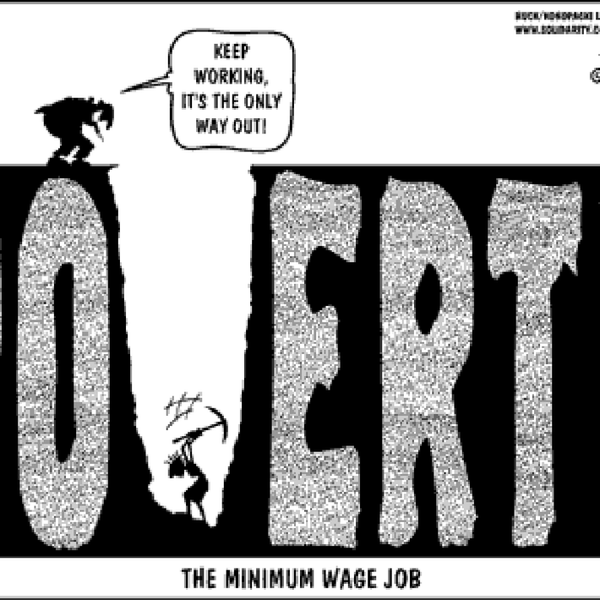Privilege — we have all probably heard of what it means to be privileged. To have privilege doesn't mean that you have not had to struggle, or that you should be guilty — it just implies that we, as those who possess some amount of privilege, should acknowledge that power we have in society and use it to help others.
This installment of the Privilege Series covers 10 signs of economic privilege (again, having economic privilege doesn't mean that you never had to work or to struggle, but merely that you might not have the same level of economic struggle as others).
1. You had 50+ books in your house as a child
Books are expensive, and illiteracy is most common in impoverished families or in areas where there is limited access to educational opportunity. If you have extra books you are not reading, think about donating them to help less-fortunate families share books with their children.
2. If your parents bought you a car
Even if you worked throughout your teenage years, your family probably had an amount of financial privilege if your parents had the extra money and resources to provide you with your own car.
3. If you didn't have to have a job in college
There's a difference between looking for a job and being unable to find one and not feeling the immediate pressure to look for a job in order to survive. If you didn't have to look for a job to support yourself or your family during college, you probably had some amount of economic privilege.
4. If you went on a spring break trip or semester abroad without scholarship or sponsoring
Even volunteering abroad can be very expensive, and while traveling is a wonderful opportunity, it isn't always easy to afford an international trip if your family is already strapped for cash. If you've benefited from a study abroad experience and have extra money, consider contributing to a student's fundraising efforts in order to make international travel possible for another person.
5. If you've purchased a new, full-priced item of clothing in the last month
The sale rack and thrift stores often provide frugal options; if you have not worried about purchasing a full-price item of clothing in the last month, you probably have a little extra money to spend. Even if you worked hard for this money, you have some privilege because there are many people who would not be able to have the extra funds to purchase brand-new items. You can help others and keep your own closets clean by donating an old item of clothing every time you collect a new one.
6. If you happen to get into legal trouble, you can hire an attorney
Legal fees are very expensive, and not everyone can afford to hire their own lawyers; instead, they depend on public attorneys to defend them in court. If you feel like your lawyer is doing poorly, you might have the money to hire a new one. A person without your financial privilege wouldn't have this same luxury.
7. You never went to bed hungry (out of necessity)
While fasting or hunger from choice is not necessarily an indicator of social class, if you went to bed hungry due to a lack of food, then you probably were at risk of poverty. According to Feeding America, 1 in 5 children faces hunger in the US. You can help out by donating canned food to local food pantries or volunteering at a soup kitchen.
8. You can go to the doctor or hospital
Some individuals do not possess the immediate funds to be able to afford a trip to the emergency room or the doctor, even if they need to go.
9. As a kid, you participated in sports, field trips, or other extracurricular activities
Many clubs, sports and field trips demand transportation or membership fees that impoverished families might not be able to afford. If you want to help, consider donating $20 or more to your local high or middle school to help sponsor a student's club or sports fees.
10. Growing up, college was an expectation
Let's be real — college is expensive, even for those with economic privilege. That's largely why scholarships are so competitive, because many people in various social classes don't want the burden of paying the full sticker-price for college. But, if your family always expected you to be able to go to college (even if they also expected you to apply for scholarships), then you probably were economically privileged. For families who are impoverished, there is a higher risk of high school drop-out and the possibility of finding extra money to go to college is much lower — especially since students of a lower socioeconomic status might feel the pressure to stay at home and get a job to support their families. Also, if your parents or older siblings went to college before you, you probably come from a more privileged background.
































